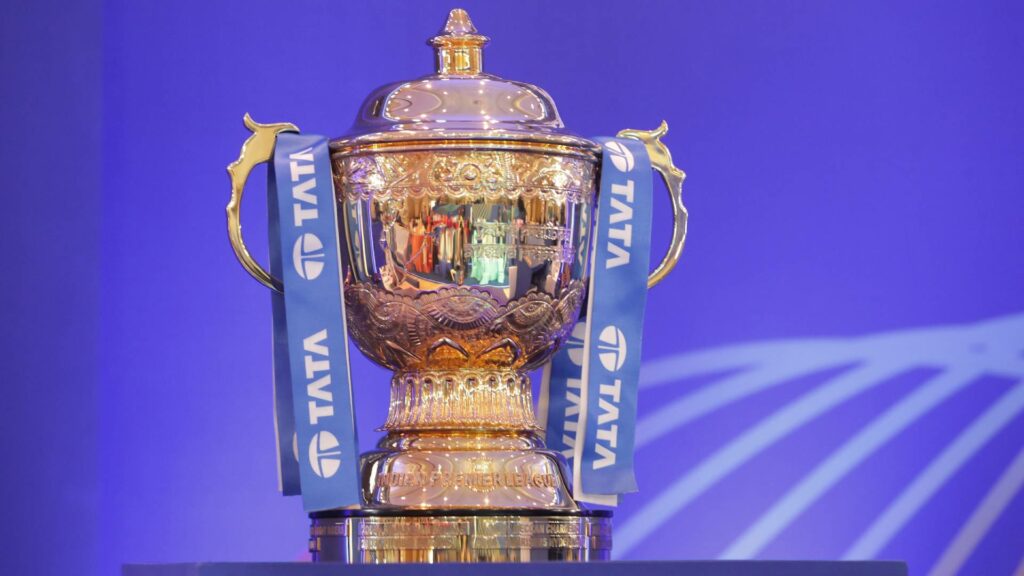The BCCI and IPL governing council on February 25 announced the groups and the format to be in use during the 2022 edition of the Indian Premier League while also confirming the tournament window and venues.
In an official release, the BCCI confirmed that ten IPL franchises, including the two new Lucknow Super Giants and Gujarat Titans, will be divided in two virtual groups of five each: Group A and Group B.
As per the format, teams will play twice against their fellow group rivals, as well as one team from the other group and contest one-off clashes with the remaining sides from that group. A total of 14 league stage fixtures per team will be scheduled, at the end of which the top four teams will make the cut for the playoffs stage.
The BCCI has been transparent in explaining how the groups were finalised, with an effort to balance things up for all teams and create a level playing field. The ten teams have been divided into groups on the basis of the historic number of titles won and finals reached in the IPL.
Five-time winners Mumbai Indians and four-time champions Chennai Super Kings are placed in two different groups, and their fellow group rivals are also allocated places as per the newly-adopted format.
Joining MI in virtual Group A are two-time winners Kolkata Knight Riders, inaugural season champions Rajasthan Royals and IPL 2020 finalists Delhi Capitals. The Lucknow franchise is the fifth team in this group.
In CSK’s group, apart from the new entrants Ahmedabad-based GT, we have 2016 champions Sunrisers Hyderabad, three-time finalists Royal Challengers Bangalore and 2014 runners-up Punjab Kings.
The metric of historic titles won and finals reached has also been used to decide the cross-group double encounters for the tournament. Equally successful franchises in the league’s history will take on each other twice while being placed in different groups. It means fans can enjoy arch-rivals MI take on CSK twice, apart from the repeat cross-group clashes among KKR-SRH, RCB-RR, DC-PBKS and LSG-GT.
But in an obvious downside, it means the most successful teams will have to deal with a tougher itinerary in the competition, whereas in ideal circumstances they should’ve been rewarded with cross-group double encounters against the least successful franchises. For eg, MI facing GT twice would’ve been a fairer arrangement to their historic performances and titles than having to face CSK, who have nearly won as many titles as they have.
Otherwise, it is the most balanced format that the IPL governing council could’ve adopted given the time constraints and the need to maintain balanced groups for all sides. With a full-fledged home and away tournament infeasible, the board had to try and come up with a schedule that gives all teams a fair chance of competing and aiming for the coveted trophy.
A Mumbai-Pune bubble has been finalised for the competition to limit air travel amid the Covid-19 pandemic. With the third wave still waning in the country, the BCCI and IPL authorities were in no mood to leave any possibility that might lead to a scenario like last year when the tournament had to be suspended and later shifted to UAE because of the Covid breach in multiple camps.
The board has been fair even in the allocation of matches to teams, stating that they will play an equal number of games at designated venues in the tournament.
In Mumbai, three venues will be in use: the Wankhede Stadium (20 matches), DY Patil Stadium (20), Brabourne Stadium (15), with the addition of Pune’s MCA International Stadium (15 matches).
Each of the ten franchises will play four games apiece in Wankhede Stadium and DY Patil Stadium, with their remaining matches equally shared in the Brabourne Stadium and MCA Stadium.
The tournament starts on March 26, with the final scheduled for May 29. A detailed itinerary is expected in the coming days.


